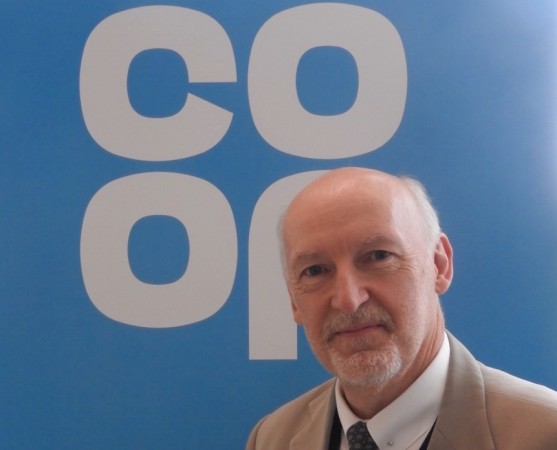The Co-op Group is to share its experience in moving from the “make, use, dispose” model to a more sustainable approach to production.
Balancing consumers’ needs and growth with sustainability is an increasing concern for the food retail industry, said Iain Ferguson, environment manager at the Group.
He will be speaking at an industry event next month to discuss the Gr0up’s move to a “circular economy” approach instead of the linear model of “make, use, dispose”.
The 12th annual Packaging Innovations, Empack and Label&Print event, at Birmingham NEC on 1-2 March, will gather experts from businesses across the sector.

Mr Ferguson will tell how the circular economy method keeps resources in use for as long as possible, extracting the maximum value from them while in use, and recovering and regenerating products and materials at the end of each service life.
The Ellen MacArthur Foundation, which campaigns for the circular economy and works with businesses to develop it, identifies three goals, said Mr Ferguson.
Related: Coop Swiss to sell 100% sustainable fish products
The first principle is to preserve and enhance natural capital – by controlling finite stocks and balancing renewable resource flows.
Secondly, organisations should seek to optimise resource yields – by circulating products, components and materials at the highest utility at all times in both technical and biological cycles.
The third principle is to foster system effectiveness by revealing and designing out negative externalities.
“Making packaging easier to recycle addresses all three of these goals,” said Mr Ferguson. “The focus is on addressing the third principle to better support the first two.”
The Co-op was the first retailer to change to lighter-coloured milk bottle caps in April 2012 – a simple change which created an extra 4,500 tonnes of recyclable plastic per year.
Last year, the society became become the first retailer to support the Plastics Industry Recycling Action Plan (PIRAP), an industry-led strategy to encourage the whole supply chain to take action to increase recycling of plastic packaging.
“In addition, we are simplifying the plastic trays used for meat, poultry and fish,” added Mr Ferguson, “making them easier and more viable to recycle by making them from just one plastic.
“More recently, we have been in consultation with key stakeholders in the waste management sector – local authorities, recyclers and professional bodies representing them – to identify the changes that we needed to make to improve recyclability.
“These changes involve exchanging laminated plastic trays for single material, and reducing colour in trays. We also used that information to influence the changes that have been made in the On Pack Recycling Label (OPRL) that all major retailers use.”
The Co-op has set out the target to make it easy for customers to recycle all of its packaging.
“We recognise this is a huge challenge,” said Mr Ferguson. “So we have a target of making 80% of our packaging easy to recycle by 2020. We measure recyclability by product line, not weight as other retailers do. We believe it’s more relevant to customer experience.”
The retailer is one of 100 signatories of the Courtauld Commitment 2025, a voluntary agreement by businesses across the system to make food and drink production and consumption more sustainable.
“This means, alongside other food and drink businesses, we will help to deliver a 20% reduction in food and drink waste in the UK by 2025,” said Mr Ferguson.
The Co-op uses the On-Pack Recycling Label scheme, a message recognised by more than seven in ten consumers, with over 500 brands using it. The system is based on what local authorities accept for recycling.
“If a packaging format is collected for recycling by more than 75% of local authorities, it is classed as ‘easy to recycle’.
“Beyond that work, we need brands and other retailers to follow our lead, and we need more brands to adopt the OPRL label. Only by working in the same direction can we give local authorities and their recycling service providers the certainty to invest in the future of UK recycling,” said Mr Ferguson.

